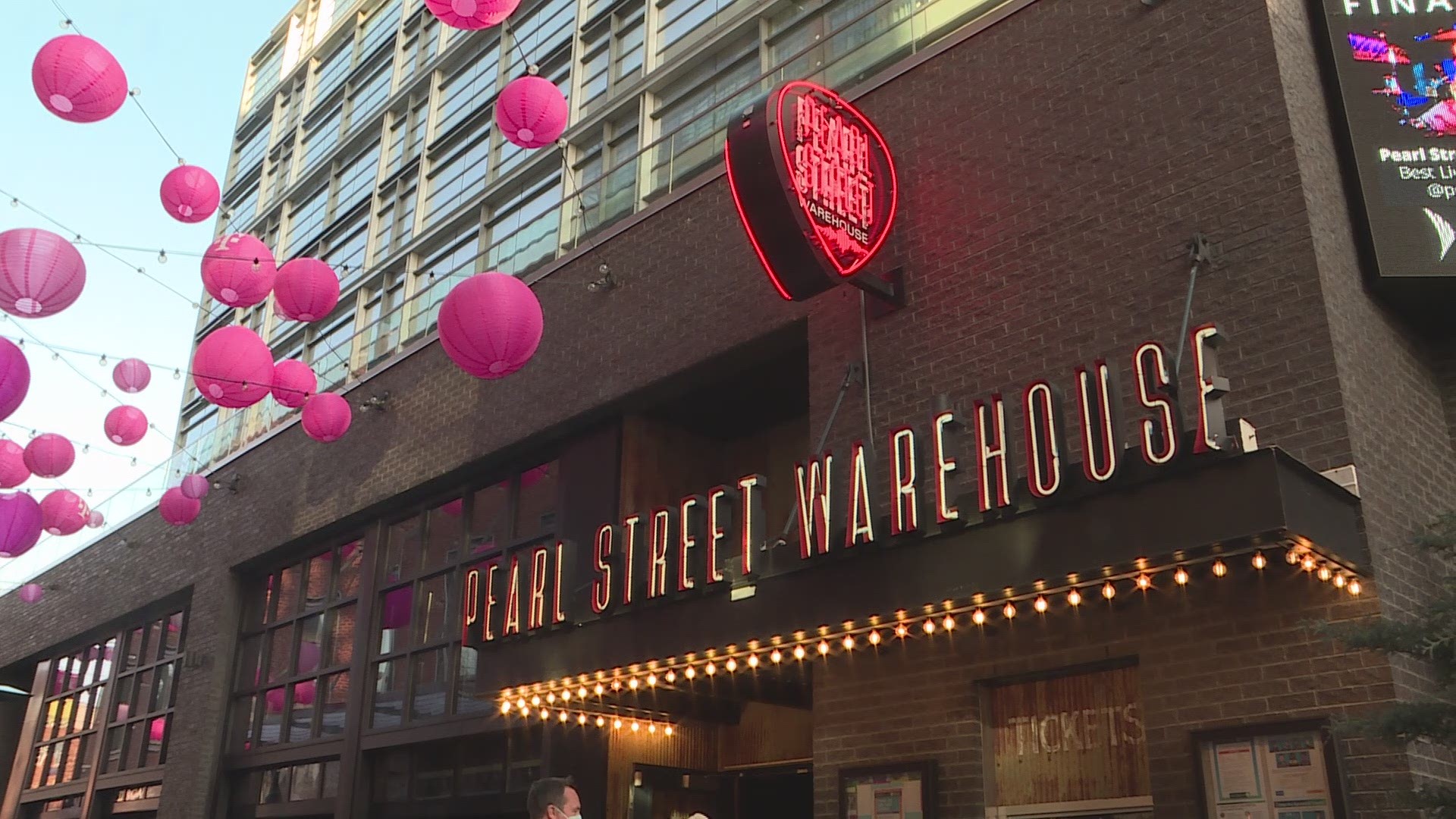WASHINGTON — With the first day of spring came a reopening for some D.C. restaurants.
For sports bars and restaurants, like Cleveland Park Park and Grill, March Madness often brings in a large amount of business. Last year — that's when they had to close their doors.
“It's great to have the tournament back," owner Jeff Holibaugh said. "You know, last year being closed for it was catastrophic for us, because that's the tournament is the best two weeks of business that we do all year round.”
Holibaugh said Monday's restriction rollback will help. One big change is allowing restaurants to serve alcohol until midnight. Right now, the curfew is 10 p.m.
“For anybody who has a bar in the city, that extra two hours is huge," he said. "The biggest, obviously going from 25 to 50% is big for us."
For live music venues, like Pearl Street, however, uncertainty remains.
The city is waiting until April to evaluate rules for concerts.
Places like Pearl Street Warehouse had taken the winter months off, but brought dining back in time for the nicer weather and the upcoming rollback of restrictions on Monday.
This weekend typically brings hundreds of ticket sales for Pearl Street Live, but instead, proprietor Nicholas Fontana said he was just excited to start serving customers again — with dining at 25% capacity.
“We thought it would be a couple months," Fontana said. "And here we are a year later. And there's no date on the horizon where we know we can book this act for 75, 100, or 200 people. So it's, you know, we're still in limbo.”
He said two years ago, the Cherry Blossom Festival brought upward of 30,000 people to the Wharf this first weekend. He hopes to see it happen once again.
Pearl Street Warehouse was one of a handful of live music venues selected by D.C. for a pilot program to reintroduce live music in fall 2020. With the next phase of reopening, Fontana said they're again eligible to start holding concerts.
This time, though, he anticipates beginning with some free concerts as they ease back in.
"Our locals and people that are live music lovers, they'll come out and sit outside just to listen to music and feel alive again," Fontana said. "So that's what we'll concentrate on while we look at the big picture down the road."
Fontana said the pilot program imposed so many restrictions that it did not make sense for them to hold concerts. The biggest problem was the required distance of patrons sitting 30 feet away from the stage.
In Pearl Street Warehouse, that seating only allowed for about six tables, he said.
“At 25% indoors we’re at about 75 seats. So and if they treated live music like restaurants, then that's feasible to do a show for 75," Fontana said. "But, that's a big difference than trying to do 30 tickets.”
He's hoping the step forward that's coming Monday does not translate to more steps back this time.
“We're not going to throw in the towel. We have too much invested in the city," he said.

